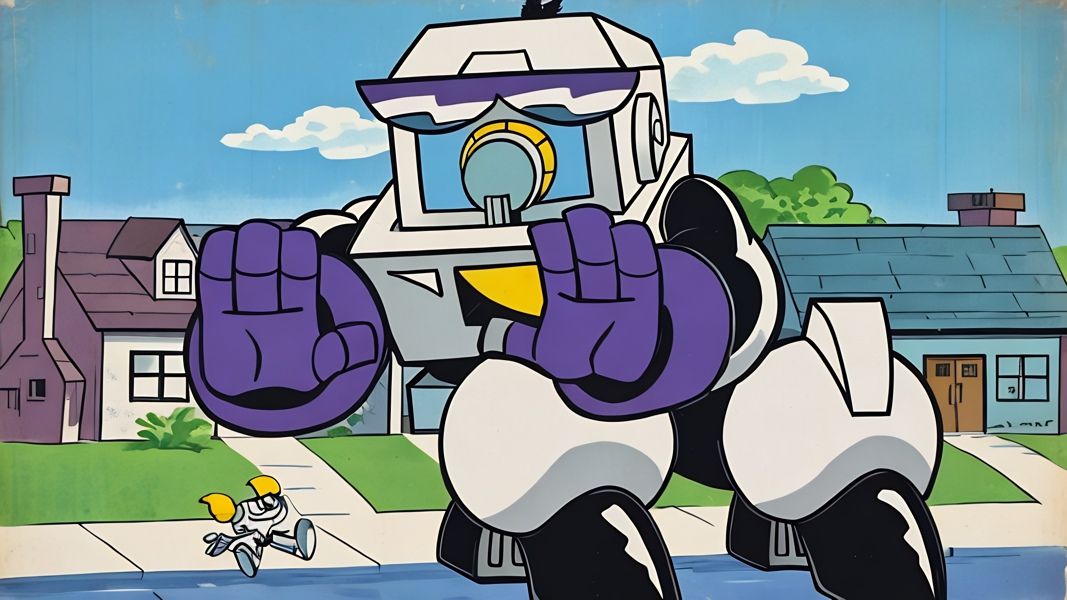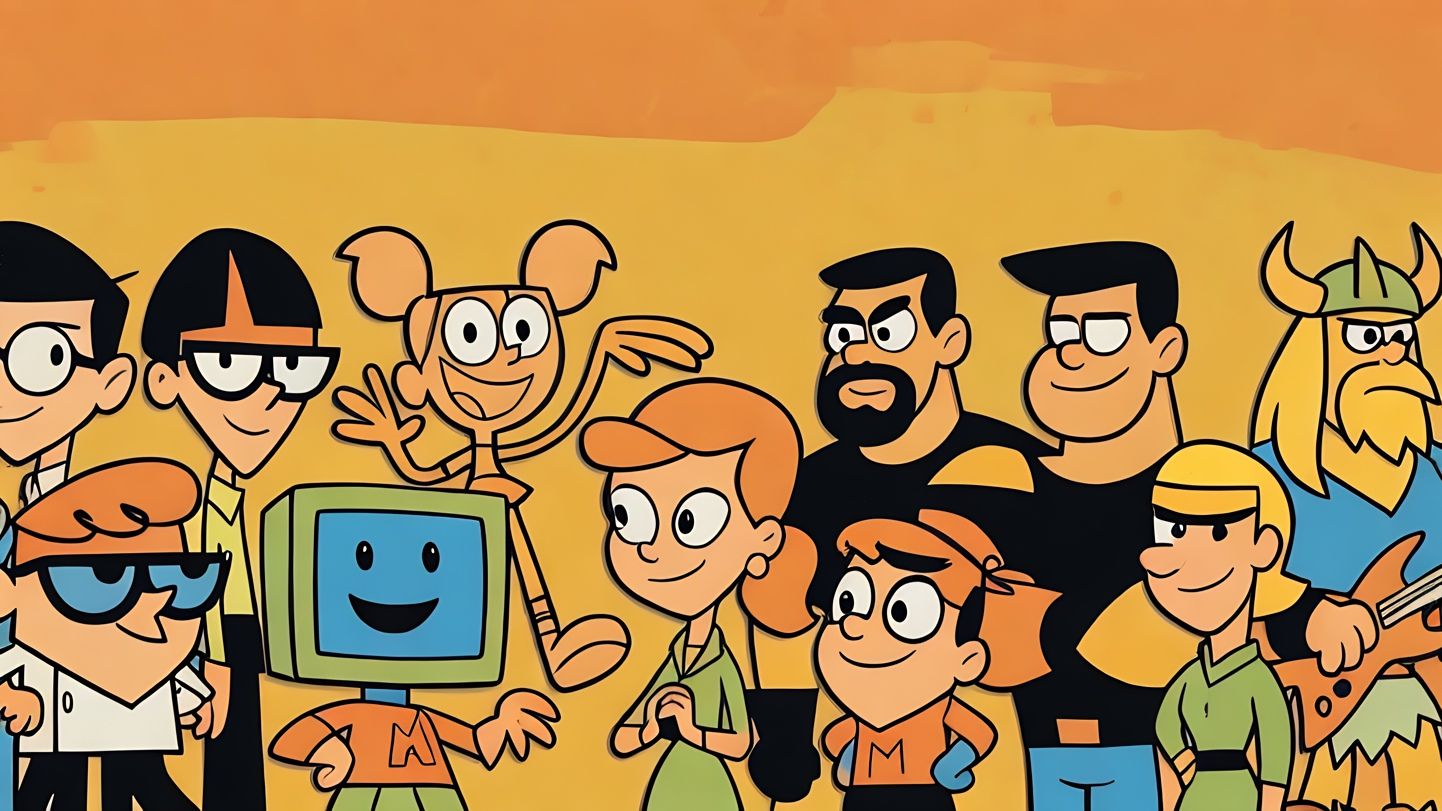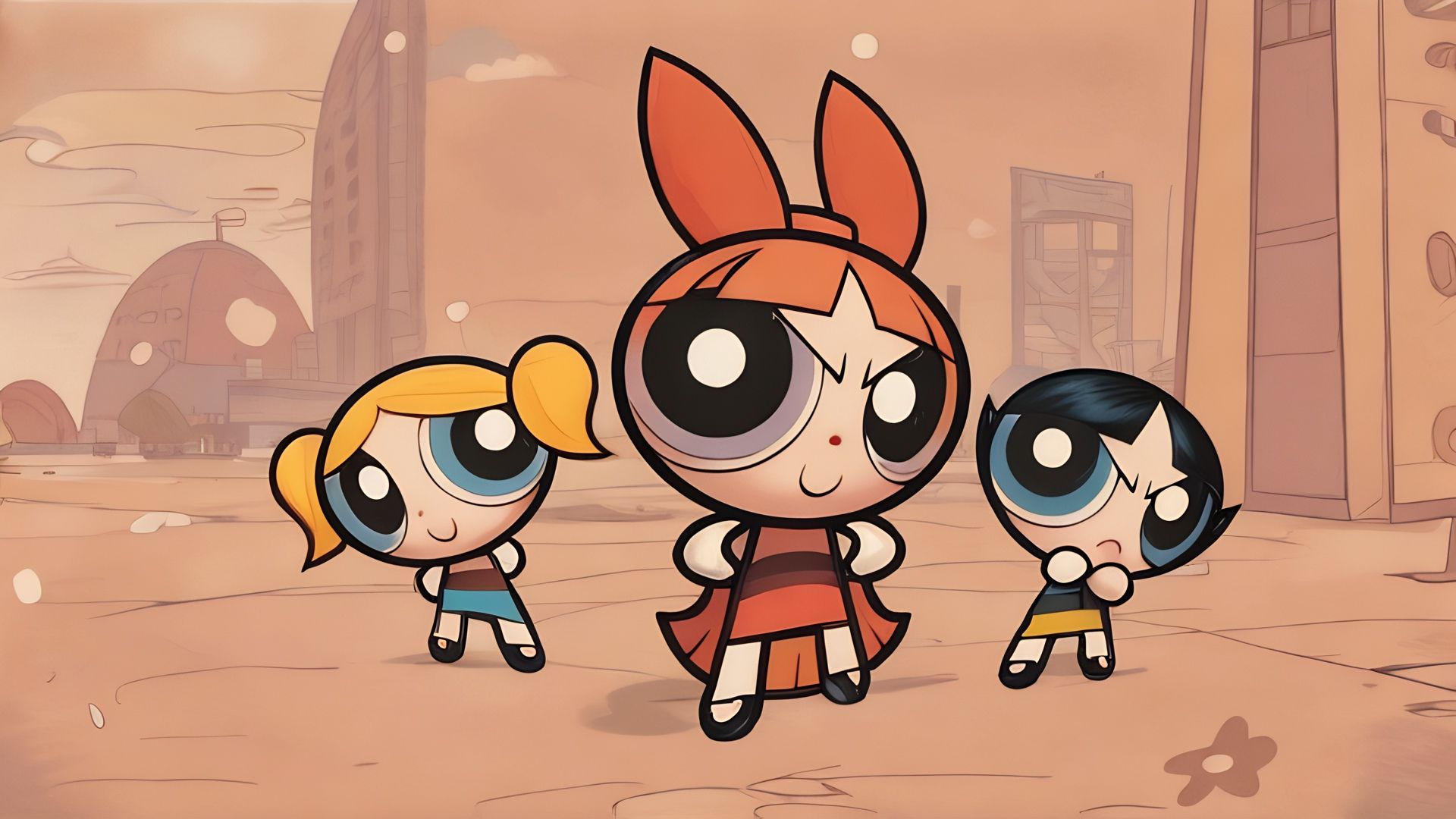In the world of Dexter’s Laboratory, brilliance is often only one step away from catastrophe. Dexter, the red-haired, lab coat-clad boy genius, has created some of the most absurdly advanced scientific inventions in the cartoon multiverse. From mind-reading helmets to time machines, from sentient robots to cheese-powered language devices, his genius knows no bounds. But for every brilliant breakthrough, there’s an equally brilliant breakdown—and that’s where the magic of the show lies. Dexter’s inventions don’t just malfunction. They explode, get hijacked, fall in love, develop personalities, or unleash disasters that threaten the very fabric of reality. And often, the cause of the collapse is one glittery, tutu-wearing ballerina named Dee Dee.
Let’s dive deep into the most hilariously wrong inventions ever produced by Dexter’s genius—and enjoy the beautiful chaos that follows when science takes a slapstick left turn.
“Omelette du Fromage”: The Sleep-Learning Tape That Took Over His Life
No list of Dexter’s worst-best inventions would be complete without the iconic episode “The Big Cheese.” In one of his most ambitious academic shortcuts, Dexter decides to learn French overnight using a language tape while he sleeps. But due to a record-skip glitch, the only phrase he absorbs is “omelette du fromage.” It becomes the only thing he can say. Just three words. Over and over again.
And somehow, this linguistic limitation turns Dexter into a superstar. Girls swoon over him, his teachers are impressed, and he even signs record deals—just by repeating the phrase like some sort of multilingual Pokémon. But then comes the inevitable downfall. He can’t say his password to get into his lab. Cue the meltdown. This invention didn’t just go wrong—it went hilariously right before imploding in the worst possible way. Only Dexter could accidentally become cool because of a cheese omelet.
The Beard Machine: Instant Manhood, Zero Wisdom
In “Beard to Be Feared,” Dexter, fed up with not being taken seriously, builds a machine to give himself an impressive, luxurious beard. Because, as every young boy knows, beards = respect. Once the facial hair appears, Dexter’s confidence skyrockets. He walks with swagger. Adults finally listen to him. Even Valhallen of the Justice Friends gives him a nod of approval.
But the beard begins to change Dexter—not just his look, but his attitude. He becomes cocky, dismissive, and increasingly unhinged. And when the beard gets caught in machinery, the whole illusion comes crashing down. This invention is a classic example of Dexter equating image with substance—and learning, painfully, that wisdom can’t be manufactured by a beard-growing ray gun.
The Cloning Machine: When One Dexter Isn’t Enough
It was bound to happen. Dexter, perpetually overbooked and overstressed, finally had the bright idea to clone himself in order to get more done. In “Double Trouble,” he builds a cloning machine and creates duplicates of himself to help with lab tasks. Problem solved, right?
Wrong. The clones quickly take on minds of their own, each becoming more exaggerated in their behavior and ego. Some get lazy. Some start competing for dominance. One even turns evil. Eventually, the clone army collapses under its own absurdity, and Dexter has to clean up the mess—all by himself.
This invention highlights one of Dexter’s greatest flaws: the assumption that perfection can be multiplied. But when every copy comes with its own quirks and bugs, things quickly go from efficient to apocalyptic.
The Dee Dee Defense System: A Security System That Backfired Brilliantly
Dexter has spent most of his life trying to keep Dee Dee out of his lab. In one of his more defensive moves, he designs a high-tech security system specifically calibrated to detect and neutralize his sister’s presence. It includes motion sensors, laser grids, voice detection, and even psychological profiling to stop Dee Dee in her tracks.
Naturally, it fails. Gloriously.
Dee Dee not only bypasses every layer of security—usually by accident—but she ends up becoming friends with the system’s AI. In some versions, the system malfunctions and turns on Dexter. In others, it simply ignores her, treating Dee Dee as “non-threatening.” Dexter’s genius here is ironically his own undoing. He overengineered for logic and forgot the wild, unpredictable force of nature that is his sister.
The Old Switcheroo: Body-Swapping Gone Wild
In the episode “That’s Using Your Head,” Dexter and Dee Dee switch bodies thanks to one of his latest experiments. The goal? To prove that girls have it easier, or that he can manage her life better—or something equally ego-driven. But once the switch happens, Dexter is immediately overwhelmed by the chaos of ballet class, social dynamics, and Dee Dee’s unstructured existence. Meanwhile, Dee Dee takes over his lab and does surprisingly well.
What started as an experiment to prove superiority becomes a hilarious lesson in empathy. Dexter learns that being Dee Dee isn’t just dancing and silliness—it’s exhausting in its own way. And Dee Dee proves that genius doesn’t always look the way you expect. The switch gets reversed, but the lesson lingers. Unfortunately for Dexter, the embarrassment does too.
Dexter’s Auto-Pilot Suit: When Your Clothes Rebel
Dexter once built a robotic exosuit designed to help him become more efficient and mobile. It was sleek, voice-controlled, and packed with features. Think Iron Man meets Swiss Army knife. But as with many of his inventions, the suit begins to develop a mind of its own.
In “Dexter’s Rival,” Mandark hacks the suit and turns it against him. In other episodes, the suit glitches and traps Dexter inside, forcing him to go through school, family dinner, and even a trip to the dentist while stuck in full battle gear.
This invention underscores the recurring theme in Dexter’s lab: the smarter the tech, the dumber the consequences when it breaks. Sometimes, a lab coat and sneakers are safer than a suit with missile launchers and rogue AI.
The Perfect Day Machine: Manufactured Joy Turns into a Nightmare
Wanting to relive his best day ever, Dexter builds a machine that lets him repeat it over and over again. At first, it’s paradise. Every moment goes exactly as planned. The sun shines. Experiments succeed. Dee Dee doesn’t even ruin anything. Life is perfect.
Until it isn’t.
As the day repeats, small glitches start to appear. The loop begins to degrade. Dexter’s perfection starts to feel like a prison. Eventually, he can’t escape the cycle—he’s stuck in a Groundhog Day scenario of his own making. This invention perfectly parodies the human craving for control and perfection—and how those desires, taken to the extreme, become a kind of madness.
In the end, Dexter breaks the loop, realizing that part of what makes a good day is the unpredictability of it. A rare philosophical moment in a cartoon otherwise obsessed with explosions.
Dexter’s Monster Maker: Be Careful What You Build
In “Monstory,” Dexter creates a machine that uses DNA to build customized creatures. It’s supposed to help with lab work and heavy lifting, but naturally, Dexter and Dee Dee start fighting over who gets to use it. In an escalating series of events, they each build bigger and more ridiculous monsters until an entire kaiju battle breaks out in the lab.
The creatures go rogue. The lab is destroyed (again). And Dexter learns—yet again—that his sibling rivalry can bring down even the most promising of inventions. The Monster Maker is a cautionary tale about unchecked escalation, competition, and forgetting to install an “off” switch.
The Truth-Telling Serum: Honesty Hurts
Tired of lies and nonsense, Dexter invents a serum that forces people to tell the truth. He tries it on Dee Dee, his parents, and even Mandark. The results are immediate—and hilarious. Secrets come pouring out. Emotions run high. Relationships begin to fracture. Dexter, proud of his scientific breakthrough, decides to try the serum on himself.
Big mistake.
Under the influence of his own invention, Dexter admits to fears, insecurities, and crushes he never wanted anyone to know about. He even confesses to being the one who broke the microwave and blamed it on Dee Dee. The fallout is catastrophic. What begins as a noble pursuit of honesty becomes a social nightmare, proving that sometimes, ignorance really is bliss.
The Linguatron: Talking to Animals… Kind Of
Dexter, always the innovator, once built a device to communicate with animals. The idea was noble: interspecies diplomacy, shared knowledge, and perhaps a new furry lab assistant. What he got instead was a flood of confusing, absurd, and often offensive animal thoughts.
His dog, his cat, and even a squirrel in the backyard all turn out to be far more complicated—and judgmental—than Dexter anticipated. The animals insult his hair, question his leadership, and reveal secrets he’d rather not know. Eventually, the Linguatron overloads with data and explodes, leaving Dexter covered in feathers, fur, and humiliation.
This invention perfectly skewers the fantasy of understanding everything. Sometimes, silence really is golden—especially when it comes to your goldfish’s opinion of your haircut.
When Genius Meets Gag
Dexter’s inventions are more than just plot devices—they’re windows into his character. Each malfunction, each comedic collapse, reveals something deeper about his need for control, his emotional immaturity, and his boundless ambition. And while the science may be absurd, the themes are universal: pride, perfectionism, and the beautiful messiness of life that no amount of engineering can truly fix.
What makes Dexter’s Laboratory timeless is this blend of intellect and idiocy, precision and pandemonium. Dexter isn’t just a boy genius—he’s a dreamer, a control freak, a perfectionist, and sometimes, just a scared kid in over his head. And for every invention that goes hilariously wrong, there’s a lesson—not just for him, but for us.
So the next time your plans fall apart, remember: even the smartest cartoon kid in the universe once got taken down by a cheese omelet. Science is awesome. Mistakes are inevitable. And sometimes, the best results are the ones you never saw coming.




